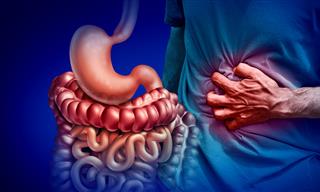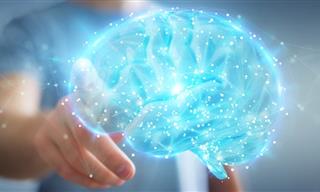Anxiety symptoms can be overwhelming, and although professional treatment can assist people in managing their symptoms, vitamins and supplements are often overlooked.
Anxiety disorders are the most common of mental disorders and affect nearly 30% of adults at some point in their lives, says the American Psychiatric Association. When left untreated, anxiety disorders can hinder relaxation, work performance, close friendships, and participation in fulfilling activities.
Although anxiety cannot be cured with medication, there are several ways to manage symptoms and attain a greater sense of tranquility in daily life. If you are living with anxiety, incorporating anxiety-specific supplements and vitamins into your diet is one step you can take to alleviate your symptoms.
Related: Suffer From Anxiety? Use This Technique to Calm Down
How can supplements help with anxiety?

Our bodies process nutrients derived from foods and drinks we consume and drink tirelessly. These vitamins, minerals, and other dietary components, such as fats, sugars, and carbohydrates, provide us with the necessary energy to sustain our lives. They also play a vital role in supporting our immune system against illnesses, repairing cellular damage caused by toxins, expediting wound healing, and even enhancing cognitive functions like concentration, memory, and emotional processing.
Extensive research has demonstrated a direct correlation between cognitive decline, emotional difficulties, and vitamin deficiencies.
There are several types of anxiety disorders, including generalized anxiety disorder (GAD), panic disorder with or without agoraphobia, social anxiety disorder (SAD), specific phobias, and separation anxiety disorder.
Typically, treatment for these disorders involves psychological therapies like cognitive behavior therapy or medication. However, studies suggest that making dietary adjustments, including incorporating specific vitamins, minerals, and supplements, may also provide benefits for individuals dealing with anxiety disorders.
Note: You should consult with a medical professional before experimenting with new supplements, whether your primary care provider, a psychiatrist, or another specialist.
1. Vitamin D

Vitamin D plays a critical role in maintaining bone, nerve, muscle, and immune health, and it also impacts mood. Vitamin D deficiencies are linked to anxiety and depression. A small study conducted in 2019 on people with generalized anxiety disorder and low vitamin D levels indicated that weekly doses of 50,000 International Units (IU) for three months alleviated anxiety symptoms and increased serotonin levels, a neurotransmitter associated with anxiety and depression.
The good news is that increasing your vitamin D intake is straightforward—it simply requires exposure to sunlight. Vitamin D is unique because the body synthesizes it when the skin is exposed to sunlight. Even as little as 10-15 minutes of sunlight on your arms and legs three times a week can provide the recommended daily amount of vitamin D, which is 15 mcg or 600 IU.
If you have limited access to sunlight in your area, you can obtain vitamin D from certain foods.
- Salmon can provide 394 to 636 IU of vitamin D per 2.5 ounces, depending on its form (raw, canned, or cooked).
- Raw oysters offer 794 IU of vitamin D per cup.
- Portobello mushrooms contain 976 IU of vitamin D per cup, while maitake mushrooms provide 786 IU per cup.
- Egg yolks supply 41 IU of vitamin D each.
- Deli meats like salami, beef, pork, or bologna contribute 30 to 54 IU of vitamin D per three-slice serving.
- Some foods, such as cow's milk, non-dairy milk, many breakfast cereals, and orange juice, are fortified with vitamin D.
If your diet lacks vitamin D-rich foods or you reside in a region with limited sunlight, taking a vitamin D supplement can be beneficial. The Mayo Clinic notes that daily dosages of 1000-2000 IU are considered safe for supplementation.
Related: Vitamin D Deficient? Make Sure to Stock Up on These Foods!
2. Omega-3 Fatty Acids

Omega-3 fatty acids are found in foods like fish and flaxseed and play a key role in promoting brain health.
Since the body cannot produce these fats, people must obtain them through their diet. For more information, read our article on 12 Natural Foods That Are Full of Healthy Omega-3.
According to a systematic review and meta-analysis published in 2018, which examined the outcomes of 19 clinical trials, it is suggested that consuming an omega-3 supplement, such as fish oil, may benefit people experiencing anxiety.
Additionally, a review study from 2018 indicates that a deficiency in omega-3 fats may increase the likelihood of anxiety and depression. The study further suggests that omega-3 supplements could help prevent or treat these conditions.
Omega-3 fatty acids can interact with specific medications, including blood thinners. Therefore, people with existing health conditions or those taking prescription medication should consult a healthcare professional before starting omega-3 supplementation.
3. Magnesium

Magnesium, an important mineral, is necessary for the proper functioning of nearly every system within the human body. Multiple studies suggest a potential connection between magnesium and anxiety.
In a comprehensive review conducted in 2017, which examined 18 separate studies, researchers discovered that magnesium supplements might enhance anxiety-related measures in people susceptible to the condition.
Additionally, a 2016 review study concluded that people experiencing anxiety associated with premenstrual syndrome experienced benefits from taking magnesium supplements.
The recommended daily intake of magnesium for people aged 18 and above is 400-420 mg for men and 310-320 mg for women.
Magnesium can be obtained from various food sources, including:
- Pumpkin seeds: A cup of pumpkin seeds provides 168 mg of magnesium.
- Spinach: A cup of spinach contains 163 mg of magnesium.
- Peanuts: A quarter cup of peanuts contains 90 mg of magnesium.
- Black beans: A cup of black beans contains 120 mg of magnesium.
- Bananas: One banana contains 61 mg of magnesium.
- Salmon: Three ounces of salmon provide 81 mg of magnesium.
It is worth mentioning that excessive magnesium intake can lead to diarrhea. Experts recommend starting with a lower dose, such as 100 milligrams (mg), and not exceeding 350 mg per day without consulting a doctor.
Furthermore, magnesium can potentially interfere with the effectiveness of certain medications, including antibiotics. Some drugs, such as antidepressants and antipsychotic medications, may also interact with magnesium.
Related: Do You Have a Magnesium Deficiency? Here's How
4. Vitamin B-Complex

B vitamins encompass a group of eight distinct nutrients that collaborate to regulate various bodily processes, including stress management.
Per a 2017 study, participants with lower levels of vitamin B12 in their blood were more likely to experience depression or anxiety.
Additionally, a study from 2018 discovered that people who consumed foods rich in B vitamins, specifically yeast-based spreads like Marmite and Vegemite, exhibited improved anxiety and stress scores compared to those who did not consume such foods. This effect was particularly prominent in vitamin B12 spreads.
The consumption of B complex supplements can provide adequate amounts of all the essential B vitamins.
A healthy and nutritious diet typically provides sufficient amounts of B vitamins. Some B vitamins, such as B12 and B2 (riboflavin), are predominantly found in animal-based foods. Thus, vegetarians or vegans may need to explore alternative means of obtaining these nutrients.
Vitamin B supplements generally do not interact with anxiety medications. However, it may potentially interfere with other prescribed medications.
5. L-Theanine

L-theanine, an amino acid found primarily in green and black tea and some mushrooms, is believed to possess gentle sedative and anti-anxiety properties.
It was observed in a 2016 double-blind study that people who consumed a beverage containing L-theanine had reduced stress levels and cortisol levels following a challenging task.
L-theanine can be obtained from various types of tea, such as green, black, oolong, or white tea. Black tea contains the highest amount of L-theanine, approximately 24 mg per cup, while green tea has the lowest, around 8 mg per cup. To obtain a larger dose, such as 200 mg, it is advisable to consider a supplement.
Supplements are commonly available in 200-mg capsules. Do consult a doctor before exceeding a dosage of 400 mg.
Health experts advise against using L-theanine with sedatives because it may interact with midazolam.
Related: 8 Supplements and Vitamins to Help You Relieve Fatigue
6. Vitamin C

While commonly recognized for its immune-boosting properties, vitamin C also provides significant benefits for the brain and is considered one of the most effective vitamins for alleviating stress and anxiety.
This antioxidant's role extends beyond immune support to central nervous system equilibrium maintenance. A study published in the Journal of Nutritional Biochemistry emphasized the association between vitamin C deficiency and stress-related diseases, highlighting the potential mood-enhancing and anxiety-reducing effects of vitamin C supplementation.
Moreover, inadequate levels of vitamin C have been linked to cognitive impairment and motor deficits. These findings suggest that taking vitamin C supplements could yield positive outcomes in the treatment of certain mental health conditions, including major depressive disorder (MDD) and anxiety.
Related: 10 Foods That Add Some Much Needed Vitamin C to Your Diet
The therapeutic potential of vitamin C in anxiety treatment stems from its antioxidant properties. Research indicates it may contribute to establishing a balanced nervous system, which is crucial for managing anxiety. Additionally, chronic anxiety elevates cortisol levels, a stress hormone associated with an increased risk of various diseases, including diabetes. Vitamin C can help in regulating cortisol levels, promoting better stress management within the body.
7. Multivitamins

People with anxiety may find it beneficial to consume a supplement that encompasses a diverse array of vitamins and minerals.
Per a study from 2019, incorporating a supplement containing B vitamins, vitamin C, calcium, magnesium, and zinc resulted in a notable reduction in anxiety among young adults.
The results of a study published in 2018 suggest that taking multivitamin supplements might be beneficial for people suffering from mood disorders, specifically anxiety disorders.
Related: How to Get the Most Out of Your Multivitamins: 6 Tips
The ingredients present in each brand of multivitamin vary. Therefore, seeking advice from a doctor or pharmacist to determine the most suitable option is recommended.
In general, multivitamins do not interfere with anxiety medications.
 Go to BabaMail
Go to BabaMail
































